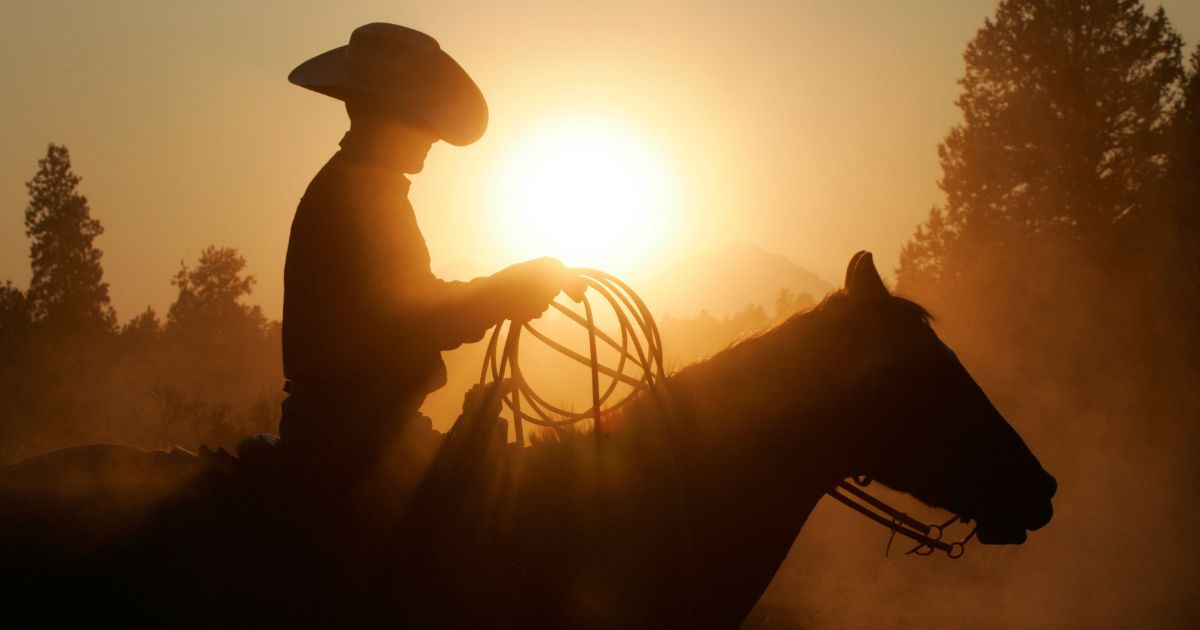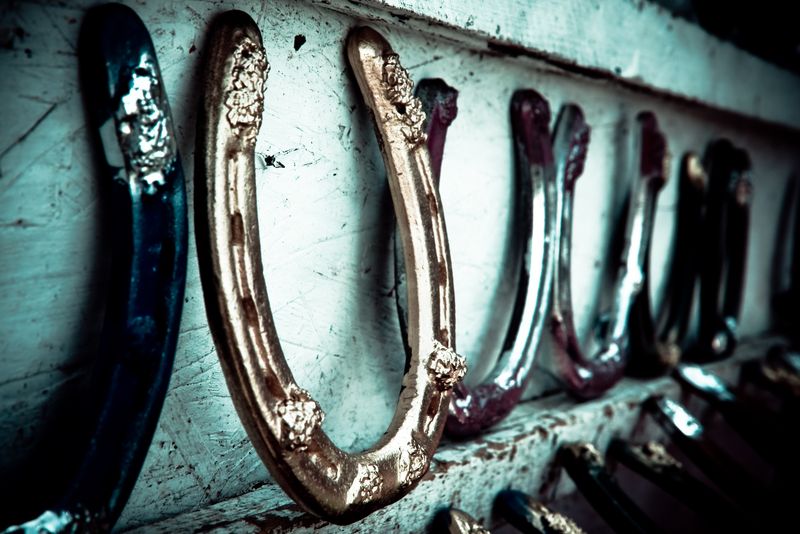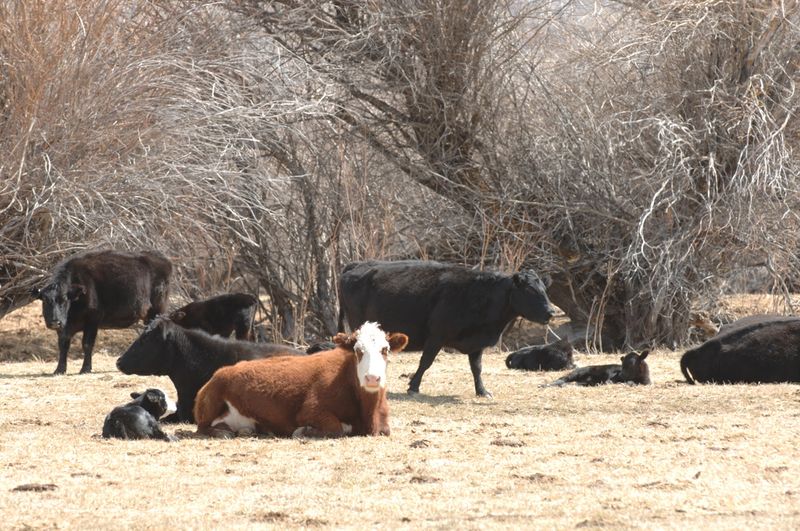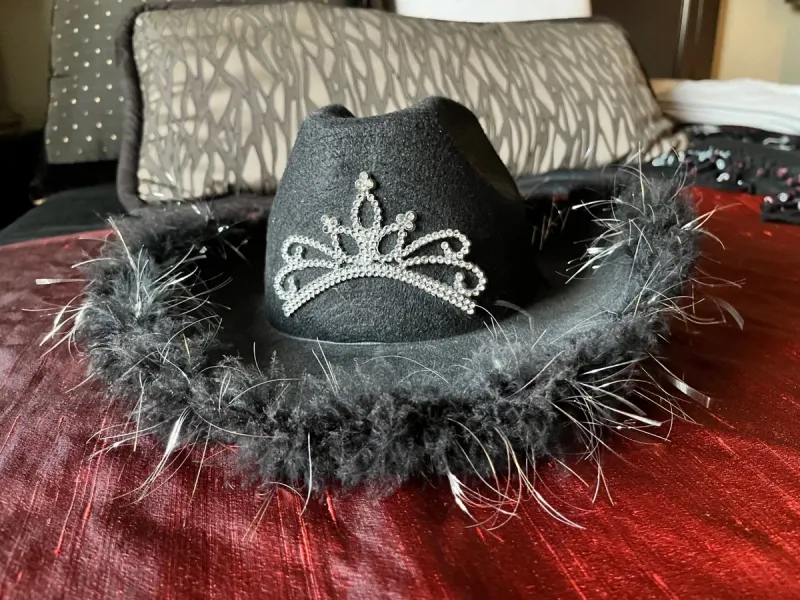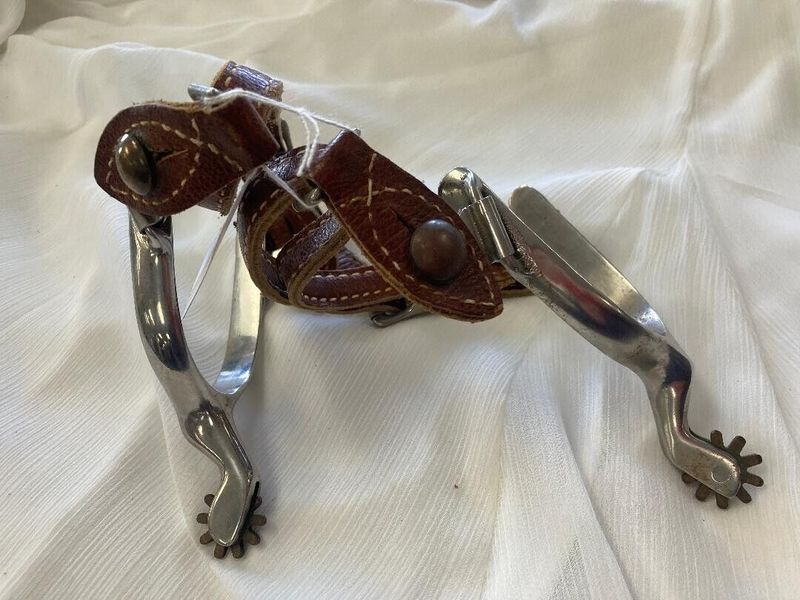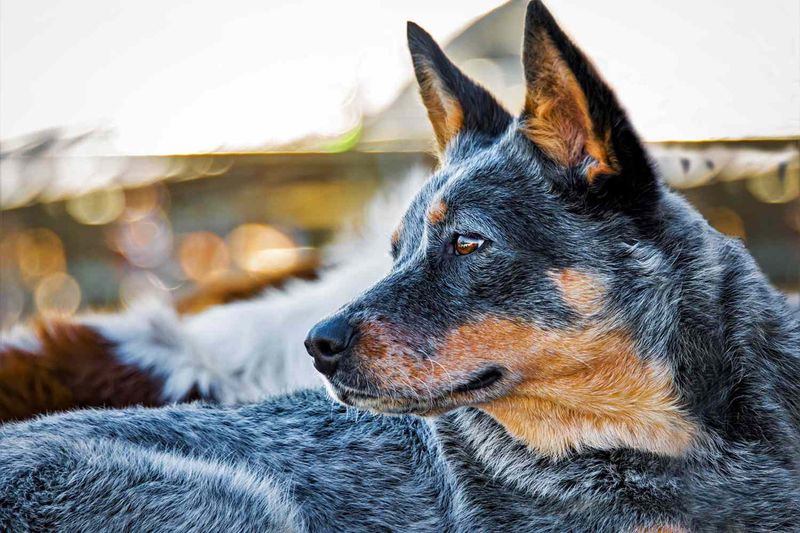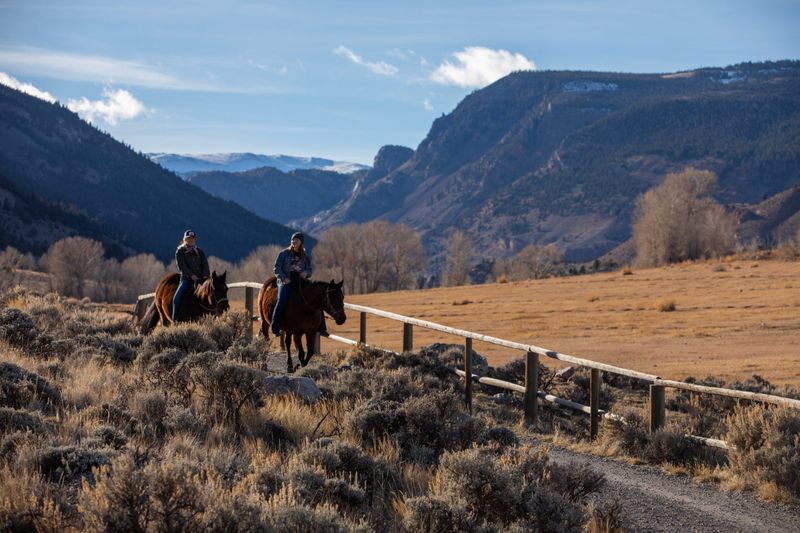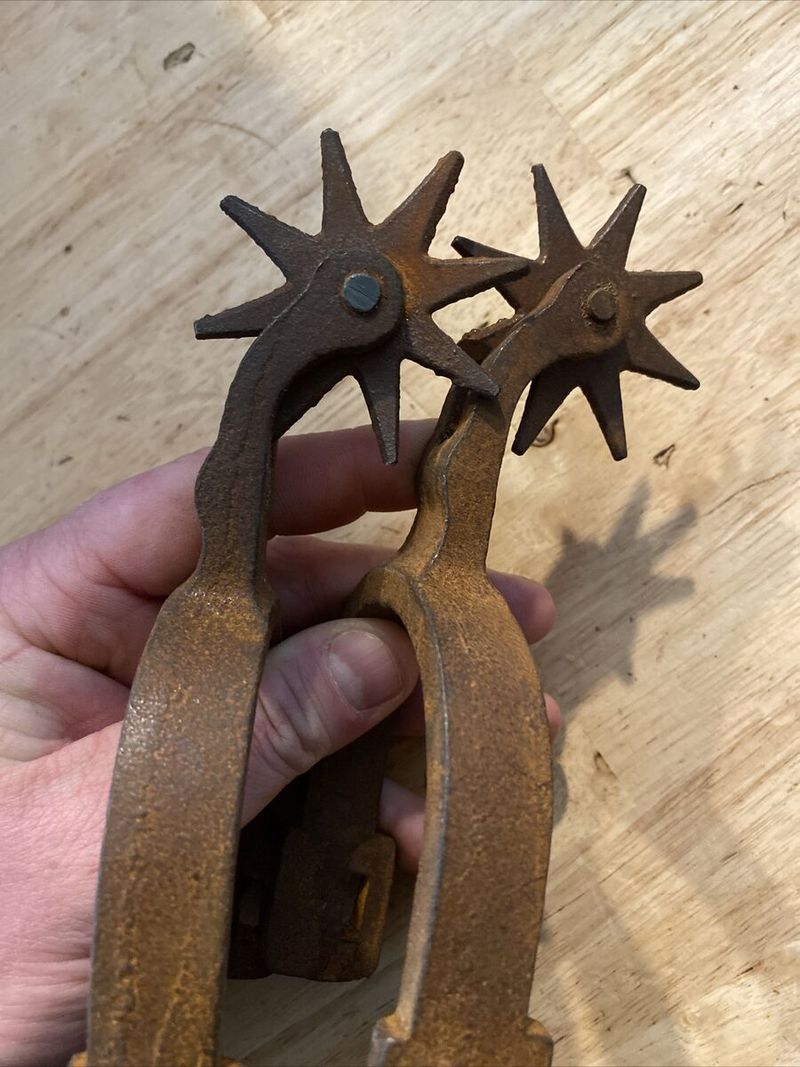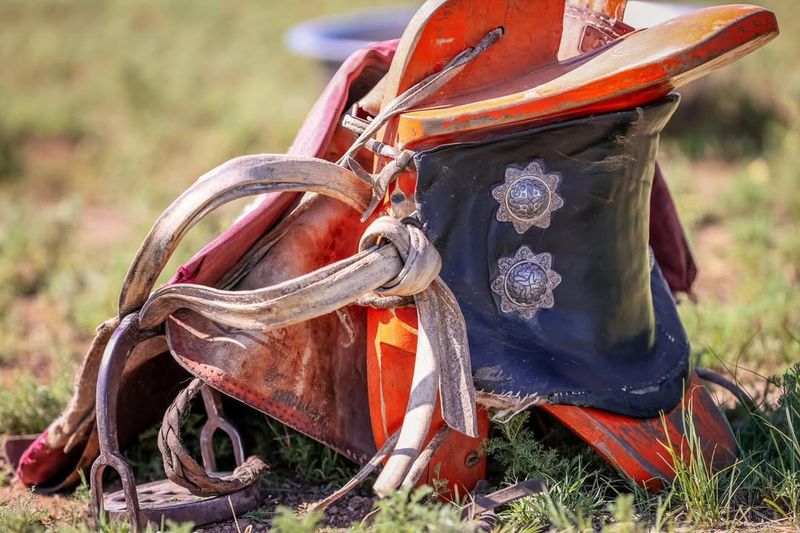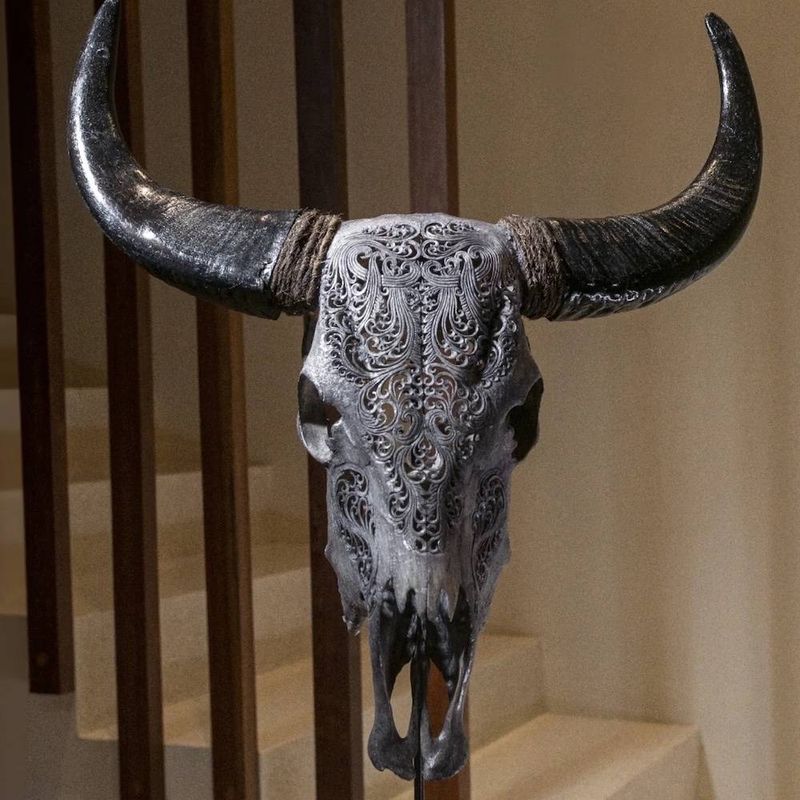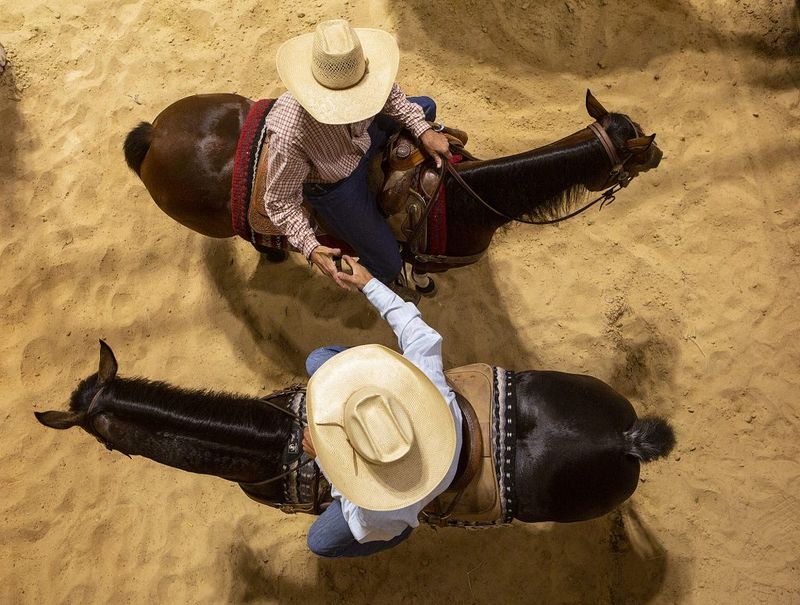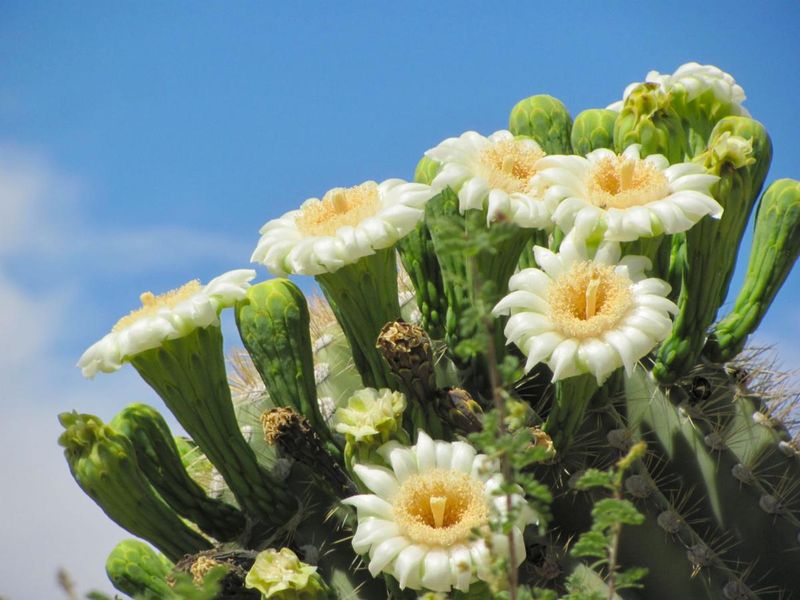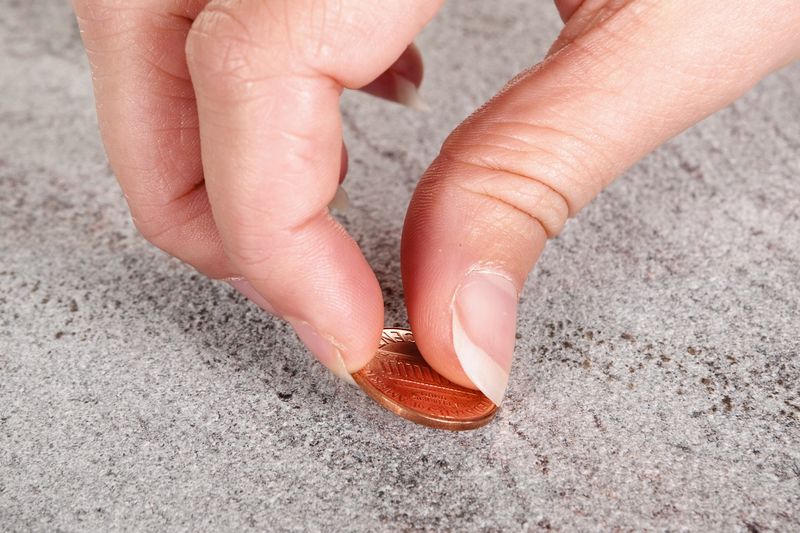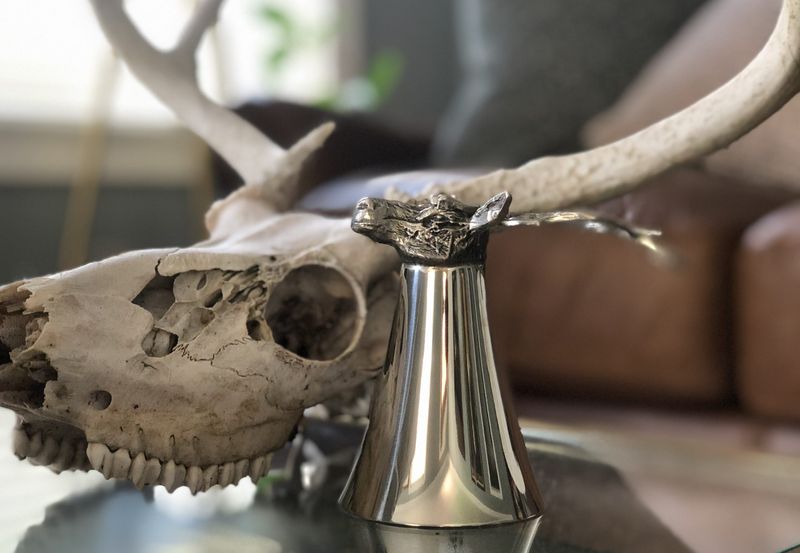The Wild West was not just a landscape of untamed lands and daring outlaws; it was a realm steeped in peculiar beliefs and intriguing superstitions. Cowboys, in their rugged lifestyle, adhered to unique traditions that shaped their everyday lives and decisions.
These superstitions, often bizarre, offered comfort and guidance amid the uncertainty of frontier life. Let’s explore 15 such intriguing beliefs that reveal the fascinating cultural tapestry of the Old West.
1. Lucky Horseshoe
Cowboys believed that hanging a horseshoe above a door brought good luck. This belief stemmed from an old European tradition where iron was thought to ward off evil spirits.
The horseshoe’s U-shape was considered a trap for good luck, ensuring it wouldn’t fall out. Cowboys were careful about placing it open-end up to catch and hold the luck.
Interestingly, these beliefs also dictated that the horseshoe should be found, not bought, to be truly effective. This quirky superstition added a layer of mystery to the mundane and was a cherished ritual among ranchers.
2. Never Count Cattle
Counting cattle was thought to bring disaster, a belief rooted in the fear of tempting fate. Cowboys avoided this practice, preferring to estimate numbers. This superstition was about more than luck; it reflected the unpredictability of livestock health and survival in harsh conditions.
The risk of losing cattle to disease or weather made counting them seem like an invitation to misfortune.
Cowboys thus relied on rough estimates, trusting intuition over precise numbers. This practice highlighted their deep connection to the land and animals they cared for, and their reliance on nature’s rhythms.
3. Hat on the Bed
Placing a hat on a bed was believed to invite bad luck. Cowboys strictly avoided this action, fearing it would lead to misfortune or even death. This superstition had its roots in the idea that a bed was a sacred space, associated with rest and privacy.
Some say this belief originated from practical concerns—hats carry dirt and germs, which could easily soil bed linens.
Regardless of its origins, this superstition was a steadfast rule. Cowboys adhered to it, ensuring their hats stayed off beds, maintaining cleanliness, and keeping bad luck at bay.
4. Spurs Jingle
The jingle of spurs was believed to ward off evil spirits. Cowboys found comfort in the cheerful sound accompanying their steps. This belief linked back to ancient customs where noise was used to scare away bad spirits.
The sound of jingling spurs also signified a cowboy’s presence and status. It was a comforting reminder of tradition and camaraderie.
While modern society might view it as mere folklore, for cowboys, this jingle was a melody of reassurance. Each step resonated with cultural significance, echoing tales of bravery and spirit.
5. Blue Healer Dogs
Blue Healers were considered good luck charms for cowboys. Their presence was thought to protect and guide cattle, ensuring safety and prosperity on the range. These dogs, known for their intelligence and loyalty, embodied qualities that cowboys revered.
Their keen instincts and hardworking nature made them invaluable companions. This superstition celebrated the bond between man and dog, reflecting mutual respect and reliance.
Cowboys cherished their Blue Healers, believing these dogs brought fortune and success. It’s a testament to the deep connections forged in the Wild West, where every ally was cherished.
6. Wind from the East
A wind blowing from the east was considered an omen of bad luck. Cowboys observed nature closely, and this particular wind direction was associated with coming storms or unfavorable events.
In the unpredictable climate of the Wild West, reading the winds was both a necessary skill and a superstitious ritual. This belief underscored a cowboy’s deep connection with the land. It was a reminder to prepare for challenges ahead.
The eastern wind served as a natural warning system, guiding cowboys in their adventurous lives, and was respected as a harbinger of caution.
7. Rusty Spurs
Rusty spurs were seen as a sign of neglect and bad fortune. Cowboys took pride in their gear, believing that well-maintained equipment was essential for success.
Superstitions around rusty spurs underscored the importance of diligence and care. A cowboy’s tools were extensions of their skill and status. Allowing spurs to rust was viewed as a lapse in responsibility and an invitation for misfortune.
This belief encouraged cowboys to maintain their tools and equipment, promoting a culture of respect and attention to detail. It was about more than aesthetics; it was a reflection of one’s character.
8. Saddle on the Ground
Leaving a saddle on the ground was a taboo, thought to bring bad luck or harm. Cowboys valued their saddles as essential tools and symbols of independence.
This superstition emphasized respect and care for equipment. Placing a saddle on the ground was seen as careless, risking damage and inviting misfortune. Cowboys regarded their gear with reverence, understanding its role in their survival and success.
Upholding this belief reinforced the culture of responsibility and pride. For many, it was a lesson in treating possessions with mindful respect, nurturing both their craft and spirit.
9. Cow Skull Decoration
Decorating with cow skulls was believed to channel protection. Cowboys used them as talismans, believing they warded off evil spirits and brought good fortune.
This practice linked back to Native American traditions, where skulls symbolized life and protection. Cowboys adopted these beliefs, seeing the skulls as a fusion of cultural respect and personal security.
The presence of these eerie decorations spoke of a spiritual connection to the land and its history. Cowboys embraced this superstition, adding a mystical layer to their rugged existence, blending practicality with cultural reverence.
10. First Star I See Tonight
Wishing upon the first star seen was a ritual that promised fortune. Cowboys embraced this nightly tradition, drawing hope and solace from the stars.
This superstition reflected a universal desire for luck and protection. In the vast, open skies of the Wild West, stars were companions in solitude.
They offered a moment of reflection and dreaming. Cowboys believed that making a wish on the first star could influence their destiny. This practice was a touchstone of hope and belief, a simple yet profound ritual that connected them to the cosmos.
11. Never Whistle Indoors
Whistling indoors was believed to summon evil spirits. Cowboys avoided this seemingly innocent act, fearing it would invite trouble or misfortune.
This superstition mirrored ancient traditions where sound was thought to influence spiritual realms. For cowboys, it was another reminder of respecting unseen forces. Refraining from whistling indoors was more than a quirky tradition; it was a practice of mindfulness and caution.
It highlighted the cowboy’s belief in the supernatural and respect for both earthly and otherworldly elements. This ritual was part of their daily lives, a small act with profound significance.
12. Shake Hands Over a Horse
Shaking hands over a horse was considered bad luck. This belief arose from the idea that it disrupted the bond between rider and horse.
Cowboys cherished their horses, viewing them as partners. The superstition highlighted a respect for this relationship. By avoiding this act, cowboys maintained harmony and mutual understanding with their steeds.
It was about preserving trust and preventing discord. This quirky belief captured the essence of cowboy life, where respect for animals was paramount. Through these gestures, cowboys communicated their values and ensured smooth cooperation on the rugged frontier.
13. Cactus Blooming
A blooming cactus was a sign of impending rain, a belief rooted in the natural cycle of the desert. Cowboys watched for these blooms as a signal of weather changes.
This superstition highlighted their reliance on nature’s cues. In the arid landscape, rain was a precious commodity. The sight of a flowering cactus was both beautiful and practical, guiding cowboys in planning their activities.
This belief reflected an intuitive understanding of the environment. It was a celebration of nature’s wisdom, a reminder of the interconnectedness between the land and its inhabitants.
14. Pick Up a Penny
Finding a penny and picking it up was seen as a harbinger of good luck. Cowboys cherished these small discoveries, believing they heralded prosperity and positive fortune.
The idea was simple: a penny found was a penny earned, and it symbolized a stroke of luck in the unpredictable journey of frontier life.
This superstition reflected optimism and a belief in small blessings leading to larger successes. It was a reminder to stay hopeful and look for opportunity in every corner. Cowboys embraced this practice, finding joy and luck in the tiniest of treasures.
15. Stirrup Cup
A stirrup cup, a drink before departing on a journey, was believed to ensure safe travels. Cowboys shared this tradition with friends, marking the start of an adventure.
The ritual of the stirrup cup was about more than the drink; it was a moment of camaraderie and well-wishing. This superstition reflected the bond among travelers and the hope for a successful journey.
It highlighted the importance of community and support in the Wild West. For cowboys, sharing a stirrup cup was a cherished ritual, infusing their travels with good wishes and positive energy.
